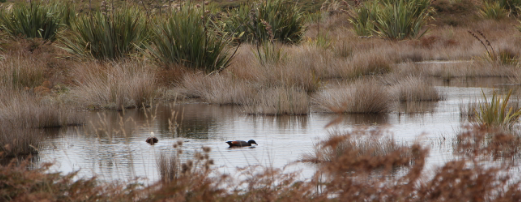Councillors updated the existing Environmental Enhancement Projects Policy, broadening the criteria for applicants and the type of consent costs now covered.
ORC’s Manager Consents Joanna Gilroy says updating the policy will broaden its scope, which could provide support to additional environmental projects.
“The ORC is actively supporting non-commercial projects, which qualify for the funding, so they can deliver on numerous environmental enhancements around the region,” she says.
A total up to $50,000 per year is already available through the Environmental Enhancement Projects Policy fund to help community and catchment groups with resource consent processing fees; to a cap of $10,000 per project. Three groups had during the past financial year drawn down a total of $13,342.
The current fee policy was introduced by Councillors in 2021 after community feedback on consent costs for catchment group consents that related to environmental projects such as wetlands.

Two main policy changes
Ms Gilroy says the first of two policy changes will make it possible for an individual or landowner undertaking
a project where there is an environmental benefit to be able to access support from the fund.
“This change recognises that some projects, consistent with the fund’s intent, are done by individual landowners,
rather than catchment or community groups,” she says.
Previously the applicant list was limited to groups from catchments or trusts from the community, iwi, incorporated societies, educational institutes or resident/ratepayer groups.
The second policy change will provide for compliance and administration costs associated with the granted consent to be covered by the fund; subject to the applicant maintaining an audit grade of full compliance.
“This change ensures that all funds can be directed to further environmental work, rather than covering ongoing costs associated with the granted resource consent,” Ms Gilroy says.
She says the eligibility criteria will now include individuals and those that get their processing fees covered will
also get their ongoing compliance fees covered, if they maintain fully compliant audit grades.
Since July last year, $50,000 per year is available to help community and catchment groups with resource consent processing fees; at the time part of a new fund introduced through the Long-term Plan.
Ms Gilroy says the original aim of the new fund was to reduce the barriers for Otago groups to advance projects
which enhance the environment.
Under the policy, a maximum of $10,000 per project will be available to cover consent processing fees for projects which meet certain criteria.
Ms Gilroy says there is no cap on support for the ongoing compliance and monitoring charges, so long as the consent holder maintains an audit grading of full compliance.
While the policy and fund is aimed at projects looking to improve biodiversity, water and air quality; often around wetland restorations, waterway fencing, riparian planting or creating walkways, financial assistance will also be considered for projects which “deliver climate change outcomes”, she says.
Applicants must undertake a pre-application meeting with ORC
One of the policy requirements is that anyone seeking processing fees support must have a pre-application meeting with a member of the ORC’s consents team to discuss their application.
To be eligible for funding, applicants must demonstrate their project will provide an environmental benefit or service and is not intended for private commercial gain, among other criteria.
It is a first-come-first-served process, and if the total $50,000 available is exhausted, the applicant will have to wait until the next financial year.
Ms Gilroy also highlighted that the $50,000 available through the policy is in addition to the ORC’s ECO Fund support, which Councillors earlier this year increased through the Long-term Plan to $290,000 per year.
Three 2021-2022 fund recipients got $13,342
The Mana Tahuna Charitable Trust received $10,000 to support its $17,244 in consenting fees for environmental
projects, at several sites around the Lake Hayes catchment.
The Otago Peninsula Biodiversity Trust and Vauxhall Yacht Club got $1979 for a billboard promoting biodiversity
activities on the Otago Peninsula.
The Wanaka Community Garden Trust got $1363 for consent fees for its community green waste and worm farm operation.
